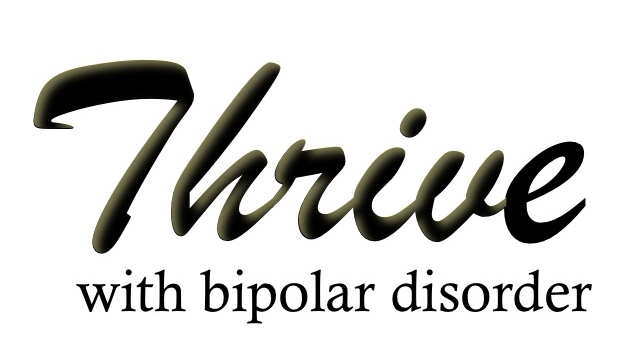 Have you ever felt like everyone else, but you, was given a guide-book for proper etiquette in various work and social circumstances?
Have you ever felt like everyone else, but you, was given a guide-book for proper etiquette in various work and social circumstances?
Some people just intuitively pick up on social rules and know how to behave or have an inner critic that keeps them from saying or doing something inappropriate.
Well, I don’t have that guide-book and I often speak before I think and lack a strong inner critic that inhibits me from speaking my mind or doing what I feel is right.
This is very common for people living with bipolar disorder. Our brains have a unique design.
Not having these qualities has the tendency to get me in trouble, especially at work. Here’s some of what I’ve learned from the challenges of not having an intuitive guide and inner critic.
This is the beginning of a series to explore challenges people living with bipolar disorder my experience in the workplace.
Challenge: Uncertainty
What makes it a problem:
In my experience of living with bipolar disorder I have discovered that uncertainty is a key ingredient in inviting mania into my life. Uncertainty by itself will not trigger mania for me; however, uncertainty combined with the other ingredients of excitement and a sense of urgency…and I have the recipe for a manic episode. (It does not guarantee a manic episode, but it makes me vulnerable to mania.)
Uncertainty is a problem in itself because it has the power to trigger my fear of being out of control within myself. The fear of being out of control within myself is rightfully my deepest fear because of my experiences of mania and depression.
This is not true for everyone. Everyone experiences bipolar disorder differently. This is solely my insight into my experience of it.
Here’s how I believe uncertainty gets it’s power:
The FEAR of uncertainty ( fear of what could happen) triggers insecurity.
Insecurity happily welcomes ruminating thoughts.
Ruminating thoughts partner up with strong emotional responses.
And poof…an emotional rollercoaster takes off at high-speed.
In my mind, my emotions were in control and taking me for a ride, even though nothing in my circumstances had changed.
How to recognize when the problem is uncertainty:
I worked in an environment that lacked structure and expectations for what I was supposed to be doing in order to be useful and effective.
All people benefit from having structure and clear expectations; however, for people living with bipolar disorder it is a MUST.
Because I did not know what I was supposed to be doing, when I started, I dove in, got creative and tried to participate in any and everything that I could. I did this because I needed to create structure and expectations for myself, so that I could function effectively. The alternative, an emotional rollercoaster, is not beneficial for me or for business.
Unfortunately my effort to create my own structure and expectations was not appreciated by my colleagues and supervisors. My efforts possibly appeared to be a lack of respect and arrogance on my part to come in and try to change their system to fit me.
What to do about uncertainty:
No one can make uncertainty go away. We will all live life “not knowing” something. However, how we respond to uncertainty is crucial in how it affects us.
My greatest lesson in regards to how to effectively respond to uncertainty for me, was learning how to sit with uncertainty. It was hard for me to learn because I used to normally respond to uncertainty with impulsivity (which got me in trouble.)
Therefore, I had to try a different response, on that was not impulsive. So I chose patience. Patience was a tough choice. Patience was something that I really wasn’t all that good at. I didn’t even know what patience really looked like. To me it was like sitting on my hands in front of the cookie jar…that’s sort of being mean to myself.
Since that wasn’t working for me, I chose a new response…“observation”. This time, when I experienced uncertainty, I took the following steps:
Observed my thoughts
I simply noticed what I was thinking. I wouldn’t run with any of my thoughts (add emotion to them) or take action. (That is impulsivity.)
Observed the situation and environment
This was easy, all I had to do was pay attention. I didn’t get involved in anything happening, I simply watched the interactions taking place and tried to notice patterns and rhythms in how everything worked together.
Identified needs, roles, weaknesses and strengths and what I could do that would be valued.
This helped me to give myself a structure and create expectations for my role in work. It also empowered me to be able to anticipate needs and opportunities to be effective.
The funny thing about learning how to observe is that it taught me how to be patient.
In the next post, we will explore lessons learned from OFFICE POLITICS in the workplace.

